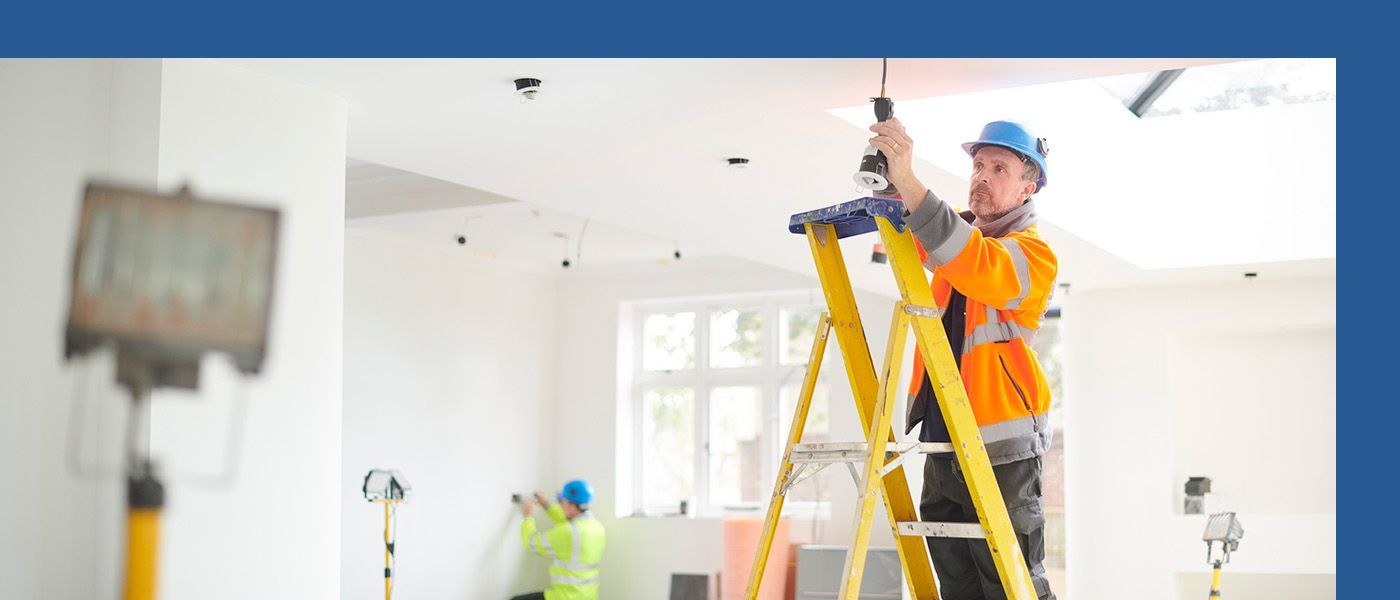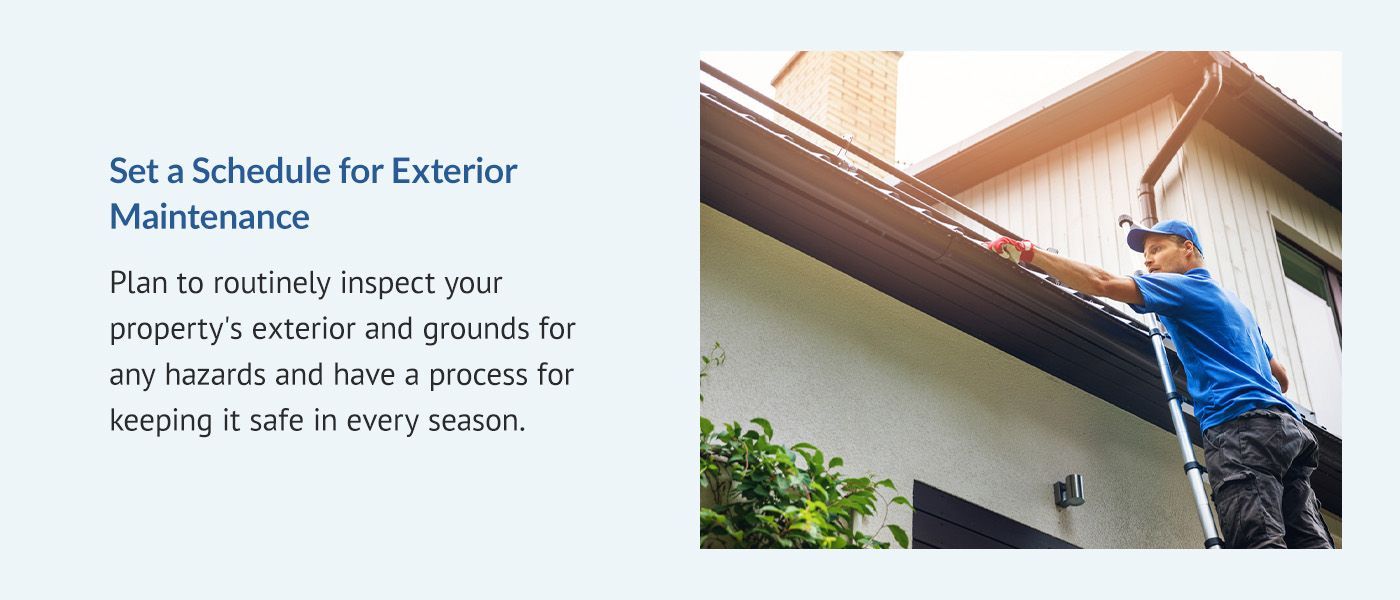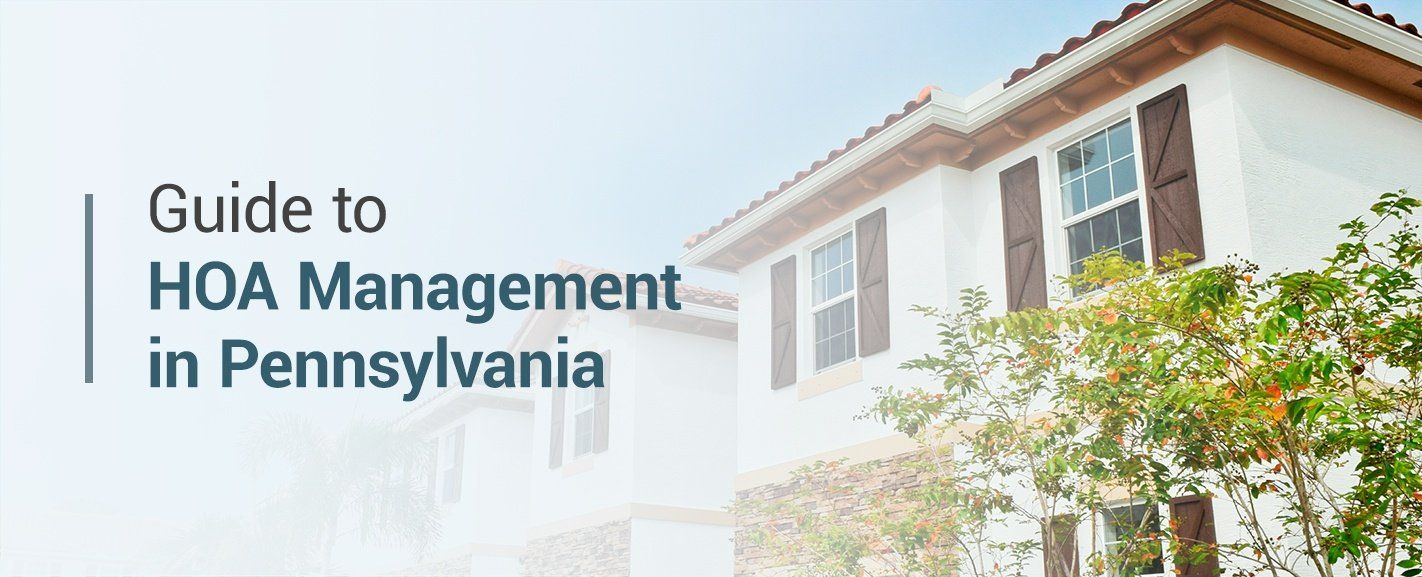Guide to Maintaining Your Rental Property

Maintaining a rental property is a big responsibility that takes time and money — but is necessary nonetheless. As a property owner, you're legally required to ensure your property is safe and habitable for your tenants. Keeping a clean, attractive property will keep you in business, too.
We'll cover the basics of rental property maintenance in this guide. If you know what to expect, you'll set yourself up for success, whether you already own properties or dream of investing in a rental.
Steps to Maintain Your Rental Property
From knowing the laws to working with trusted contractors, a lot goes into property maintenance. Let's look at some key steps:
1. Know State and Federal Laws
Before performing routine inspections and maintenance, it's essential to know your rights as a property owner and your tenant's rights. Learn what you're required to provide tenants by law, including anything regarding safety.
Also, learn what your tenants' responsibilities are. Knowing property management laws will help you determine what to focus on with maintenance.
For example, in Pennsylvania, landlords must provide a “warranty of habitability," meaning the space must be “safe, sanitary and reasonably comfortable.” Therefore, you'll want to prioritize inspecting and repairing anything relating to a safety hazard or sanitation issue.
2. Create a Preventive Maintenance Checklist
Whether you own a commercial or residential property, it's wise to perform preventive maintenance. Preventive maintenance allows you to fix problems before they become major expenses and provide a safer, cleaner space for tenants.
If your property is in overall good condition, plan to thoroughly inspect it at least once a year or when tenants move out and before new tenants move in. To keep your property in top shape, you should inspect high-use common areas quarterly or monthly.
Create a checklist to make sure you cover everything. In general, you'll want to check the following during your inspection:
- Smoke detectors
- Carbon monoxide detectors
- Fire extinguishers
- Hot water
- Drinking water
- Heating and cooling systems
- Door and window locks
- Sewage
- Elevators
- Appliances
- Interior and exterior lighting
You'll also want to check for:
- Pests
- Water leaks
- Mold and other environmental toxins
- Electrical issues
- Blocked exits
- Broken plumbing fixtures
- Damaged walls, ceilings, floors, windows, screens or doors
- Clogged drains
- Structural damage
- Unstable towel racks, railings and shelving
- Missing or damaged caulk or grout
- Peeling paint
- Trash or disrepair in common areas
Overall, you'll need to consider anything that could make your property uninhabitable. Think about ways to ensure your property is comfortable, too, even if it's not required by law.
For instance, while you may not be legally required to provide air conditioning, consider if it's worth the investment to maintain your property's cooling system. Going above and beyond to make your tenants happy and comfortable increases the likelihood they'll renew their lease, refer friends or leave positive reviews about your rental.

3. Set a Schedule for Exterior Maintenance
You also need to make sure your property's grounds are safe year-round. Plan to routinely inspect your property's exterior and grounds for any hazards and have a process for keeping it safe in every season.
For example, inspect your roof after winter to ensure it hasn't been damaged by ice or snow. Check your property's gutters in the spring and fall to make sure they aren't clogged with debris.
Consider how you'll handle lawn care and snow removal. Depending on your agreement with tenants and the type of property you manage, you may be responsible for mowing the grass in the summer and shoveling snow in the winter. If you aren't doing this yourself, hire a dependable lawn mowing and snow removal service.
4. Check Your Lease
Your tenants must know their responsibilities and what to do in an emergency. Be sure your lease clearly states your tenants' maintenance responsibilities. Provide emergency maintenance contact information and examples of when they should request an emergency repair. Provide a timeline so tenants know not to let emergencies go unaddressed for too long.
Include how much notice you'll give to make non-emergency or emergency repairs. While there may not be a law in your state regarding how much notice to give, in general, it's recommended to provide at least a 24-hour notice for non-emergency repairs.
Consider if there are reasonable restrictions you want to add to the lease to help keep your property in excellent shape. For instance, you might add a no-smoking rule to your lease, or forbid tenants from painting the walls.
5. Find Dependable Contractors
You may be able to repair some things on your own, while other tasks demand expertise. Know who to call if you need bigger or emergency repairs to the HVAC, electrical or plumbing systems. Look for contractors with licenses, insurance and reputations for reliability and reasonable prices.
Not sure where to look for contractors? Ask other local landlords for their top recommendations.
Hiring pros can ensure repairs are done correctly the first time and prevent more costly issues down the road.
6. Have a Savings Plan
It's crucial to save money for regular maintenance. The American Apartment Owners Association recommends setting aside about 3% of your property's value for annual maintenance costs.
Consider this example — if your property is worth $500,000, plan to save at least $15,000 a year or $1,250 a month for maintenance. Know that this is just the minimum amount you'll want to save and doesn't account for emergencies. Think about any unexpected costs that might pop up over a year.
7. Document Everything
Make sure to document any repairs you've made to your property, noting the date and time these repairs took place. For example, if a tenant requested a repair, record the following:
- Tenant's name
- How quickly you responded to the request
- How much notice you gave the tenant before entering their space
Your records could come in handy if there's a dispute, and they'll also help you track what tasks you've completed and what still needs attention.
8. Join Forces With a Property Management Company
Even with a plan, maintaining a rental property is a lot to keep up with. You need to be prepared to handle emergencies around the clock. Things happen no matter where you live or the number of properties you manage.
Fortunately, you don't have to bear the weight of rental maintenance — property management companies are available to make your life much easier.
A company like American Heritage Property Management (AHPM) handles all the aspects of property management. When you partner with AHPM, you won't have to deal with:
- The stress and inconvenience of tending to emergency repairs.
- Wading through tenant laws to ensure your property is compliant.
- Completing preventive maintenance inspections and tasks.
As a full-service property management solution, we'll take care of the grunt work for you.

Choose American Heritage Property Management
Ready to partner with an experienced property management company in or around Baltimore and Central Pennsylvania? We're excited to help you succeed and make your tenants feel at home.
With over 40 years of experience and a team of dedicated agents, we're excited to help you make the most of your investment. Contact us today and learn more about our complete property management services.




